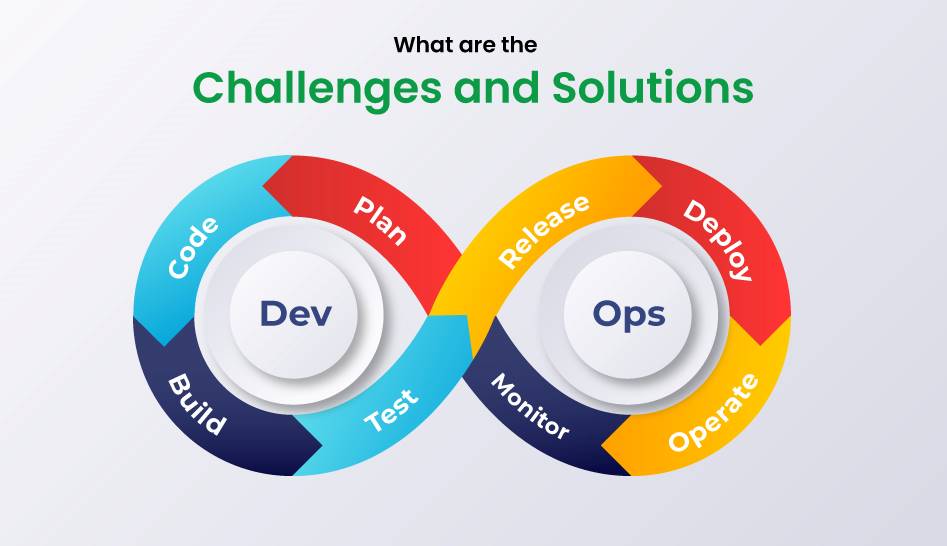
Expectations are on the rise as is connectivity. The more connected the globe is, people expect solutions to perform faster and smoother. Even the slightest delays can push teams to pick a solution from elsewhere. Managing and delivering on these expectations requires businesses to be in a state of constant upgrade. This is where DevOps comes in.
DevOps is a culture encouraged by the market for businesses to achieve digital transformation. With hyper-personalization taking up the B2B space as well, organizations are looking for technologies that allow them to pick and choose how they deliver their solutions. And what better way to pick and choose tools than implementing a DevOps pipeline.
DevOps has been around for quite some time, now. It is a product of evolving technologies, mindset, and most importantly the need for speed. And yet, 85% businesses are experiencing roadblocks in implementing DevOps, according to study carried out by Altassian.
Let’s take a look at a few challenges hindering DevOps implementation.
Devops Challenges and Solutions
Resistance and Expertise
One core DevOps automation challenge, is resistance to adoption owing to lack of expertise.
DevOps, as often preached is not just a pipeline that runs on continuous integration and continuous deployment. It is a culture of collaboration encouraging teams to work together, by sharing resources and tools – which is what causes the resistance.
From the time organizations started, teams have always functioned in silos. Team members were considered experts in their domain. Having them learn, adapt, and share technology and tools with other teams is daunting.
Adopting DevOps must not be hastened. It must be gradual, and well-thought out. Organizations must focus on training around DevOps culture, tools, and expectations. This will help teams realize the need for a DevOps environment and make adoption much easier on both employees and stakeholders.
Lack of Visibility
While speed is an integral feature of efficient delivery, optimizing deliveries must not solely focus on speed. Businesses often run upgradation processes in a haste to meet their market expectations.
The technical challenges in DevOps ensure a lack of visibility, due to organizations wanting to fast-forward the process. This means, they would be unaware of any security loopholes in them.
Organization must run routine checks on their assets and operations to ensure teams are up-to-date. It is advisable for businesses to get tools to help them track and monitor their processes and status of their assets.
Tool-set Clashes
Utilizing tools are a means to an end in the DevOps culture. However, using the wrong tools can make it cumbersome for the teams involved in retrieving the right requirement. Organizations often do the mistake of employed pre-defined pipelines to execute their solutions, which can again cause discrepancy in the end product.
DevOps isn’t a one size fits all puzzle piece. Businesses must pick and choose their tools depending on their requirements. Be it faster testing or deployment, the pipeline must be customized to suit the business requirements to get one step closer to avoiding the challenges of DevOps.
Any of these challenges sound familiar?
Legacy
Legacy applications and infrastructure often pop up as drawbacks when it comes to process enhancements. Not only is it difficult to navigate the architecture, DevOps tools may find it cumbersome to work with legacy applications with all the customizations built on it over the years.
A legacy application can be broken down to microservices. Organizations could also create APIs to carry out information exchange from within the legacy architecture. Owing to a cloud-based infrastructure, both APIs and microservices are compatible with DevOps tools, enabling an agile environment.
Find the right partner
DevOps brings with it the capabilities of continuous integration, testing, delivery, and deployment. It creates a safe space for teams to indulge in real-time experimentation in trying to include the customer’s latest feedback and demands.
Partnering with a DevOps expert would save up so much time in training, figuring out the tools, re-organizing workflow structures. DevOps solutioning partners would have their own teams, decked with knowledge, experience, and expertise to help navigate through the clutter and deliver on the requirements.
Connect with our DevOps experts at info@nalshaa.com and get yourself setup with a customized pipeline.

